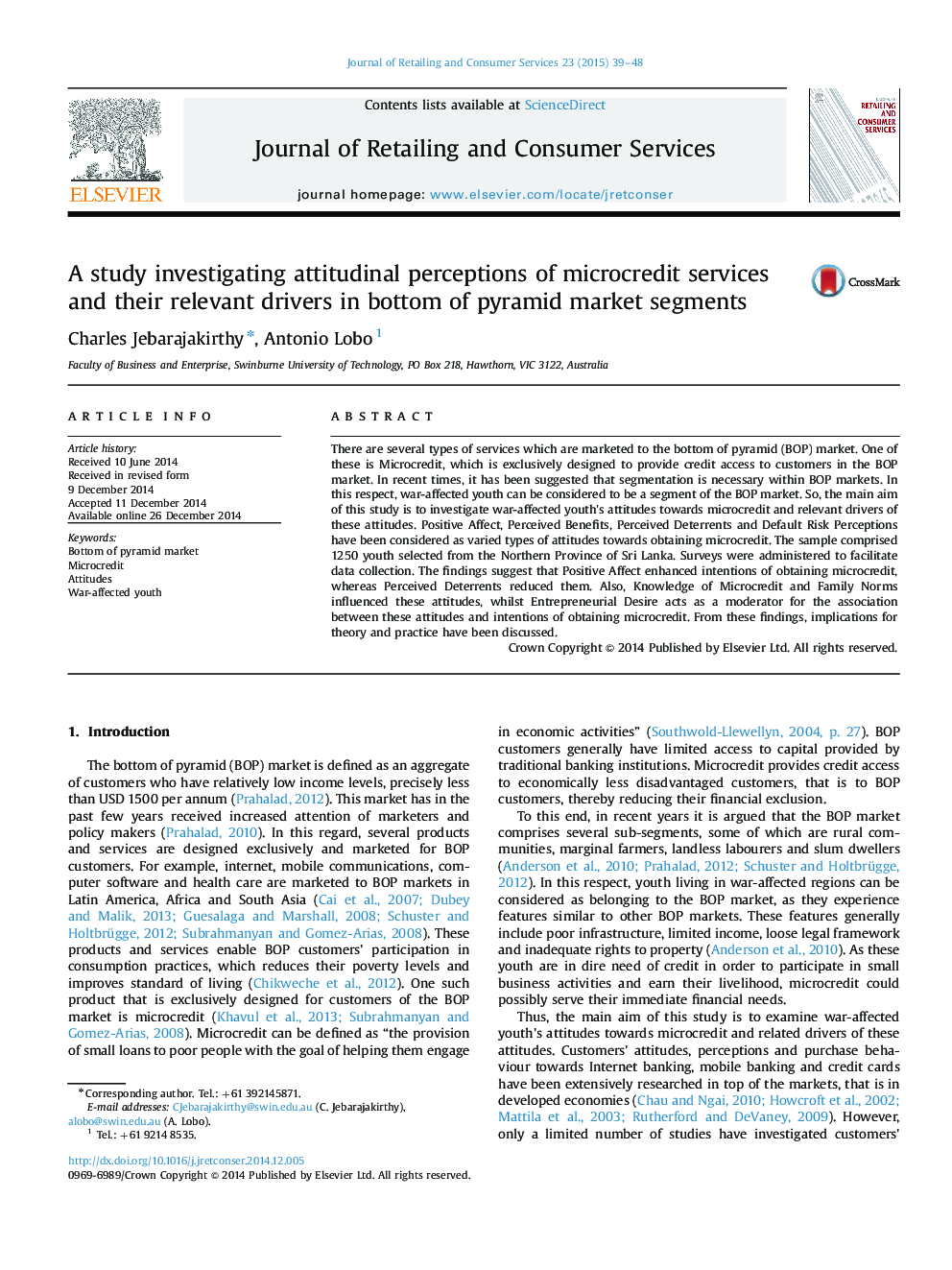| Article ID | Journal | Published Year | Pages | File Type |
|---|---|---|---|---|
| 1028978 | Journal of Retailing and Consumer Services | 2015 | 10 Pages |
•The bottom of the pyramid market comprises several segments, and war-affected youth can be also a segment in it.•Positive Affect, Perceived Benefits, Perceived Deterrents and Default Risk Perceptions are types of attitudes towards obtaining microcredit.•Of these attitudes, only Positive Affect and Perceived Deterrents had significant influences on intentions of obtaining microcredit.•Family Norms and Knowledge of Microcredit had antecedent effects on these attitudes.•Entrepreneurial Desire had moderator effects on these attitudes.
There are several types of services which are marketed to the bottom of pyramid (BOP) market. One of these is Microcredit, which is exclusively designed to provide credit access to customers in the BOP market. In recent times, it has been suggested that segmentation is necessary within BOP markets. In this respect, war-affected youth can be considered to be a segment of the BOP market. So, the main aim of this study is to investigate war-affected youth׳s attitudes towards microcredit and relevant drivers of these attitudes. Positive Affect, Perceived Benefits, Perceived Deterrents and Default Risk Perceptions have been considered as varied types of attitudes towards obtaining microcredit. The sample comprised 1250 youth selected from the Northern Province of Sri Lanka. Surveys were administered to facilitate data collection. The findings suggest that Positive Affect enhanced intentions of obtaining microcredit, whereas Perceived Deterrents reduced them. Also, Knowledge of Microcredit and Family Norms influenced these attitudes, whilst Entrepreneurial Desire acts as a moderator for the association between these attitudes and intentions of obtaining microcredit. From these findings, implications for theory and practice have been discussed.
